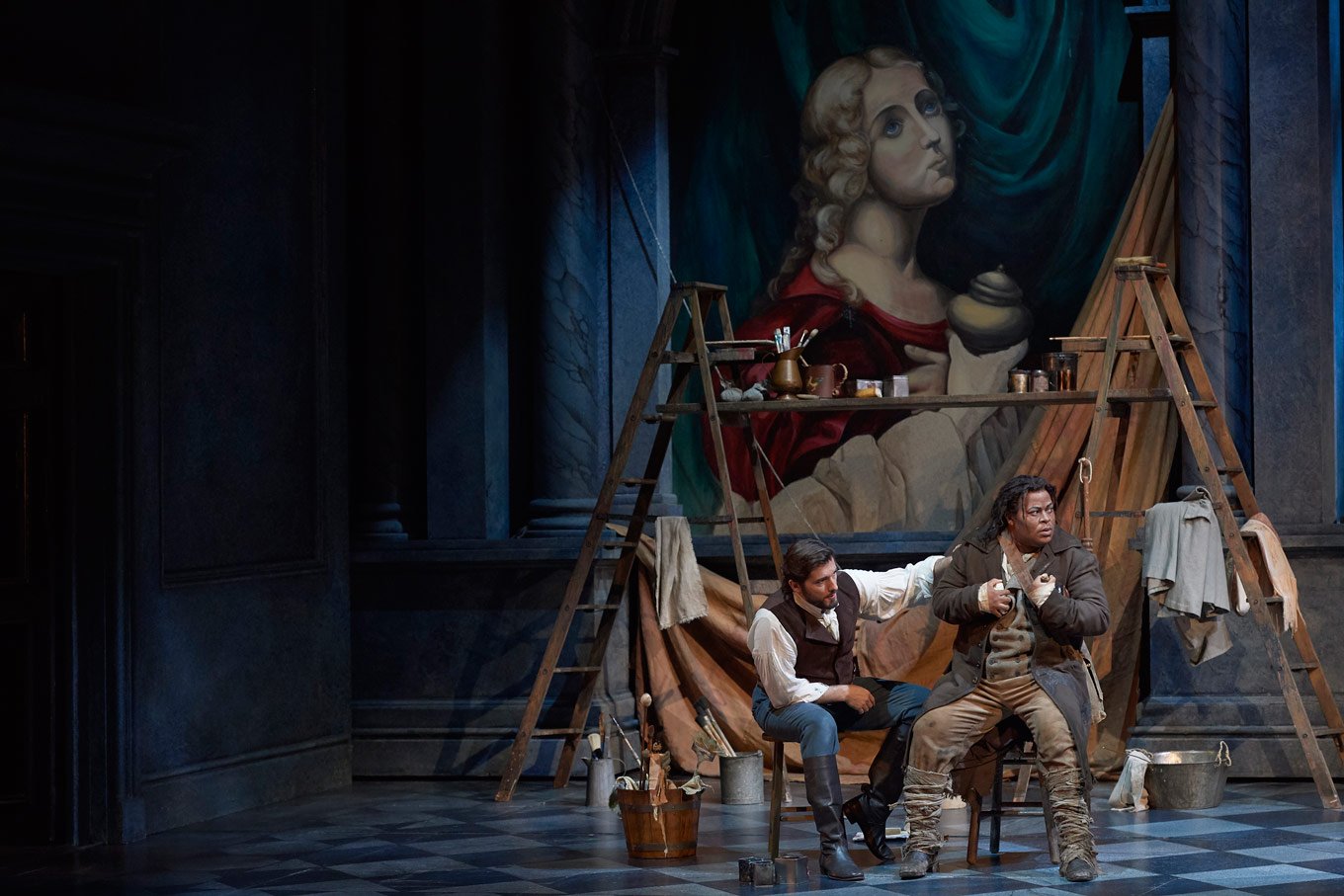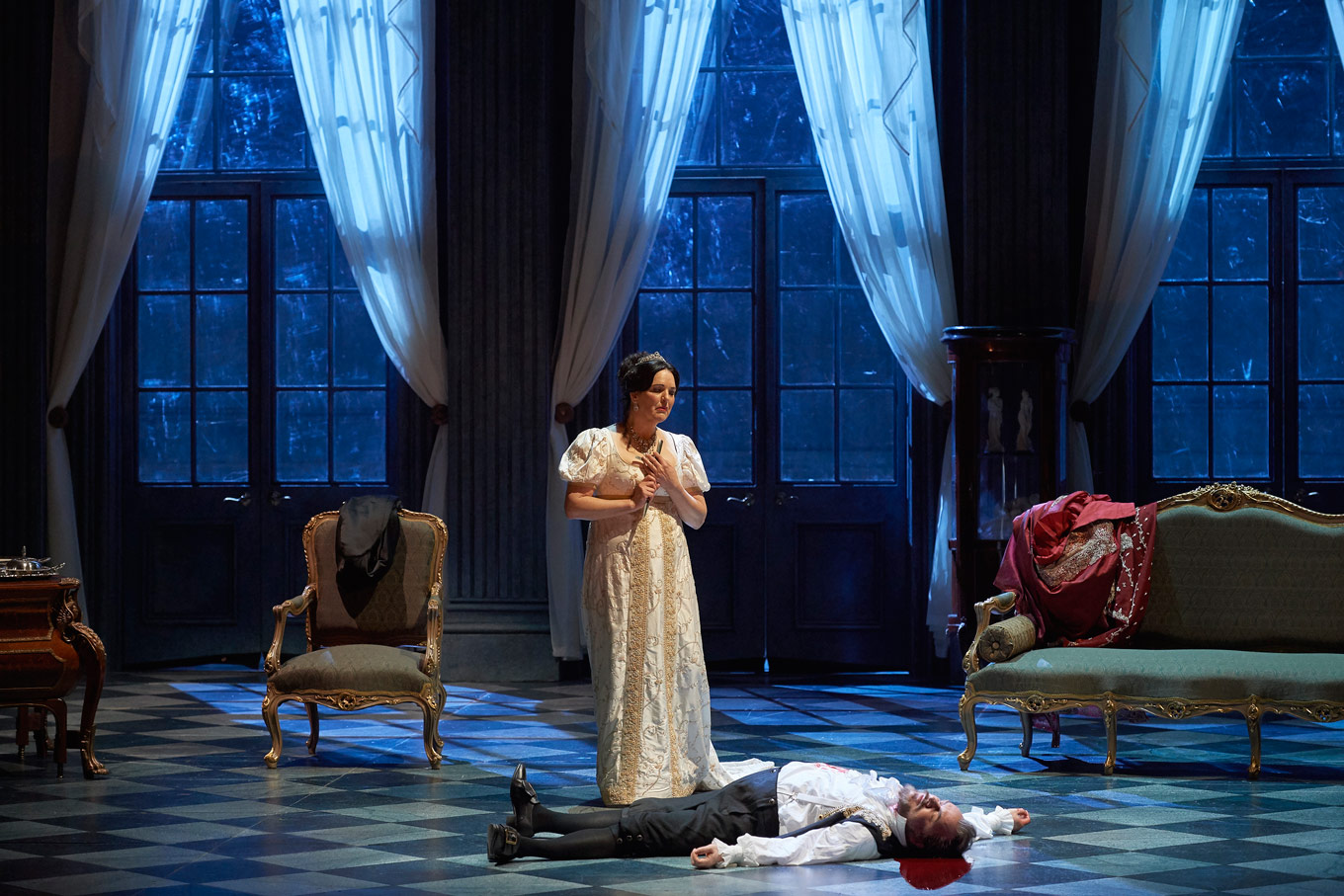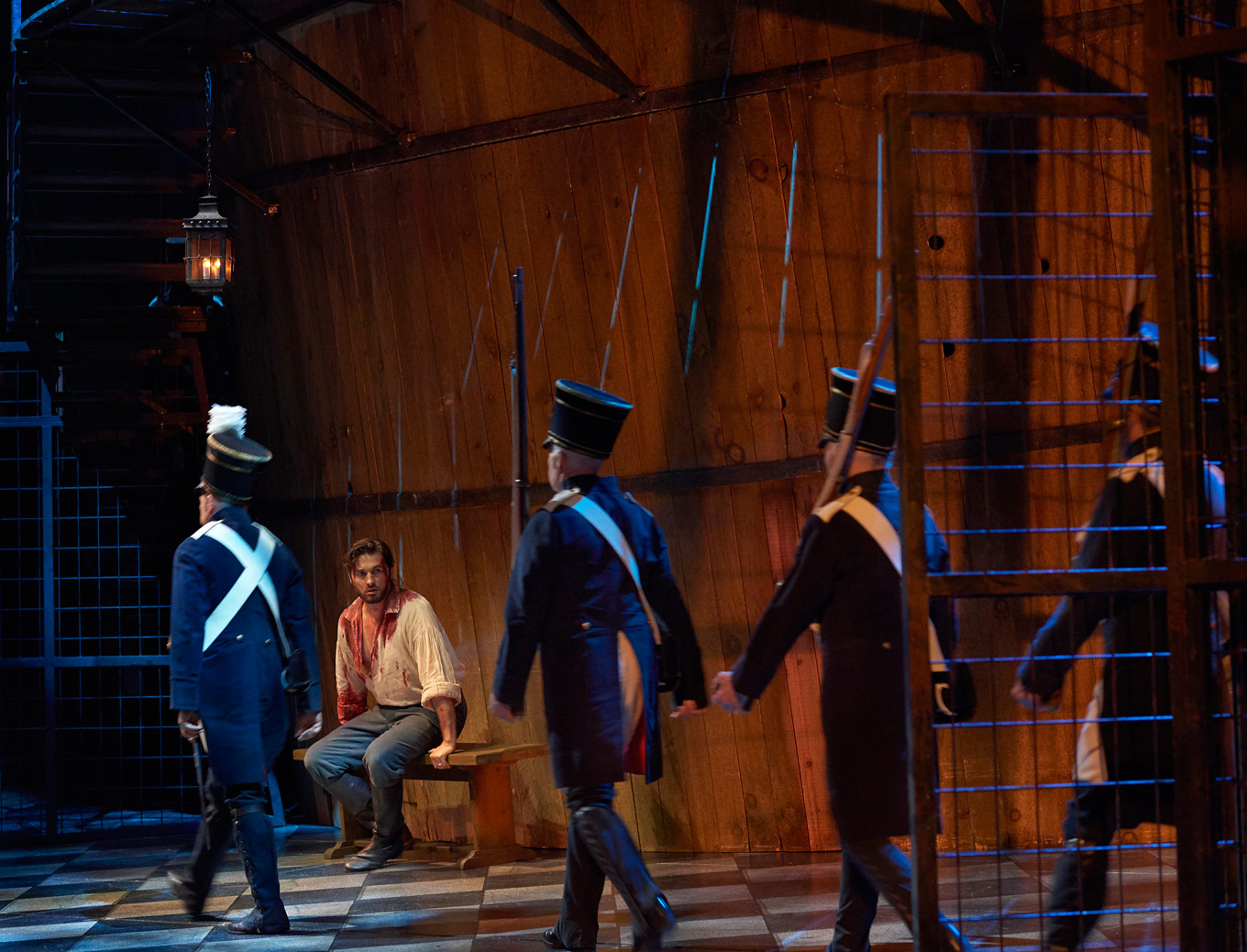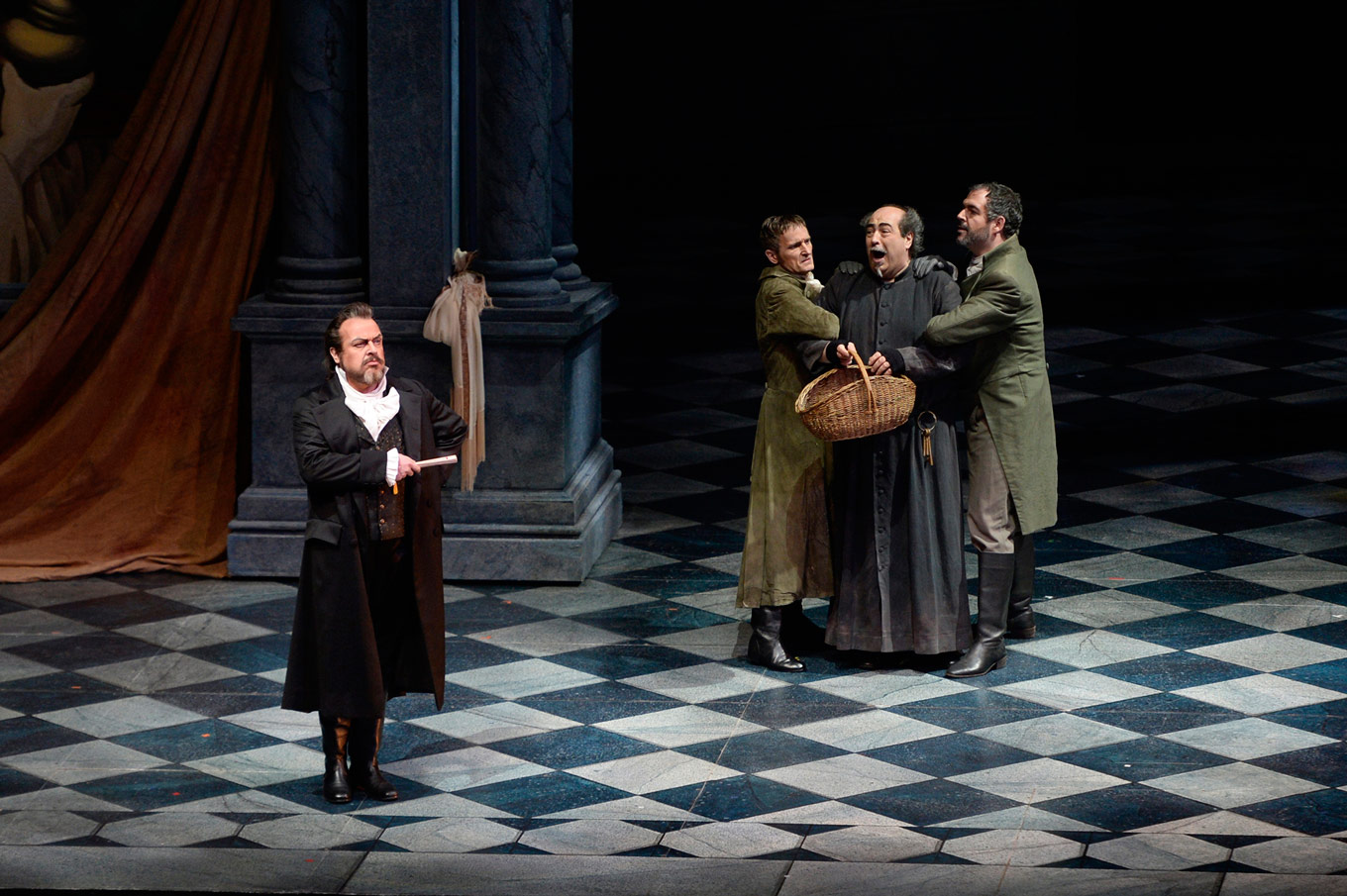
In review: Tosca at the COC
ReviewIt seems to be a trend with the most popular picks of the operatic canon, performed in the world’s major opera houses: that the voices are thrilling, and the well-loved music serves to make up for any moments of weakness. Such was the case for Tosca, currently onstage at the Canadian Opera Company.

The show kicks of well with Musa Ngqungwana’s bold and beautiful bass-baritone as Angelotti; he fills the house with a lovely sound that holds all the urgency of a man on the run. His frantic scene sets an honest bar for quality singing, foreshadowing the kind of singing we would get from the title character. Indeed, Adrianne Pieczonka is every bit the famed singer Floria Tosca, her voice an impossible range of cannon-like volume and power, and limpid honesty in her most vulnerable moments. The evening truly went to Pieczonka; her performance was organic and full of personality, and Tosca became a woman we felt like we understood.

As Cavaradossi, Argentine tenor Marcelo Puente is a strapping presence and a passionate actor; yet save for a handful of truly heroic high notes, his singing was a distraction. Pressed and largely under pitch, Puente seemed to swallow, over-darken, and generally make too difficult Puccini’s vocally ergonomic lines. Though he had palpable chemistry with Pieczonka, Puente seemed to simply survive many of Cavaradossi’s lines, rather than make music out of them.
Markus Marquardt’s Scarpia was a villain who seemed to slowly unfurl throughout the evening. His first moments onstage came with a rich sound that stayed slightly muffled, yet as Act II unfolded, his controlled and calculated approach gave way to wilder outbursts. Though we craved a more bombastic sound and more dangerous Scarpia, Marquardt’s slow-burn approach to the character added some subtlety to his manipulation of Tosca - which is dangerous too, and perhaps in a more realistic way.

The production by Paul Curran is smart, thoughtful, and without ego; the three sets are imposing for different reasons, and they helped pull us into the naturalistic world of this story, where people converse at a speech-like pace, and react to the world around them as you or I may do. Though staged with dramatic care, two crucial moments of physicality in the show came off slightly lame; a timid stabbing and a poorly timed chase up the stairs pulled us out of the story, laid out so well by Puccini. It had us curious to see the performance by the second cast, for comparison.
The organic look of this Tosca seemed contrasted with what came from the orchestra pit, led by Keri-Lynn Wilson. Her tempi held meaning, either to let the action tumble forward, or to hold back and live in a dramatic moment; yet they rarely seemed informed by what the singers were doing. She seemed deaf to much of the text, and her over-conducting (opting for 6 beats when 2 would do) left her with little room to follow the voices’ lead. Plus, her frustrating choice to leave a break for applause after both of Cavaradossi’s arias seemed to completely undermine the careful dramatic timing in Puccini’s writing.
Thank goodness for Adrianne.

Tosca runs at the Four Seasons Centre until May 20. Pieczonka’s performance is unforgettable, and the second cast - led by Keri Alkema, Kamen Chanev, and Craig Colclough - promises excellent performances. For full details and ticket info, click here.


Comments